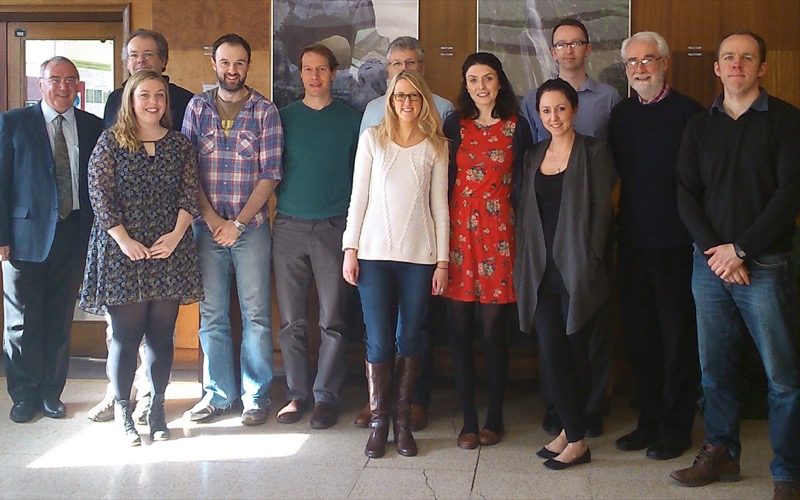Trinity Collaboration Turns Appliance of a Little Science into a Big Green Success
Posted on: 09 December 2014
A new research collaboration between the School of Engineering and the School of Business in Trinity College Dublin which focussed on developing new energy efficient water technology has also shown how the appliance of a little science can be turned into a big green technology success.
The collaborative project, known as the HydroBPT project, investigated opportunities for energy recovery from the public water supply system using micro-hydropower technology. As the names suggests, micro-hydropower technology is small in scale but can produce sizeable results. This technology utilises existing infrastructure in the water network rather than the construction of large dams or spillways as would normally be associated with large scale hydropower schemes. As a result, micro-hydropower is almost invisible most of the technology is underground along with our water infrastructure.
According to Professor in Operations Management Paul Coughlan, one of the Trinity research team leaders:
The project was a wonderful opportunity to collaborate across disciplines in a research project which addresses a critical issue of our time – management of water and energy.
To date the HydroBPT project has highlighted a potential for energy recovery in Irish and Welsh water infrastructure of over 20 GWh, which is equivalent to the energy required to power over 4,700 homes. The benefits of recovering energy from the water network in this way could amount to an annual saving of over €2.5 million in electricity costs for the water industry as well as a reduction in CO2 emissions of over 10,000 Tonnes (which is roughly equivalent to the amount produced by 2,200 passenger cars per annum).
The water sustainability research collaboration highlights the potential societal benefits of multi-disciplinary research between the Sciences and the Arts and Humanities. The research spans the disciplines of Engineering, Business, Environmental Science and Geography and also involves a partnership between Trinity College Dublin and Bangor University, Wales as well as direct interaction with water industry advisors such as Welsh Water, Irish Water, Dublin City Council, National Trust Wales, among others.
The aim of the project, according to Assistant Professor Aonghus McNabola and Professor Paul Coughlan, who led the Trinity research team, was to investigate the exploitation of energy recovery opportunities in a network of pipes (under the ground) through collaboration among organisations (over the ground). This meant that the project involved a mix of technical engineering and organisational challenges and consequently, the collaboration between the Engineering and Business Schools in Trinity was central to achieving practical solutions which can be implemented in practice. The Trinity research team included: Lucy Corcoran, Christine Power, Tracey Lydon and Jennifer Brady.

The School of Engineering focused on developing the new turbine technology for the water industry along with enabling design software for the optimisation and future-proofing of the concept. The School of Business explored the development of systems to enable collaboration among the diverse range of organisations involved in implementing the engineering solutions in practice. The project also supported the education and development of 3 PhD students and, in a first for the two schools, all the students were jointly supervised by both schools.
The collaborative project received €975,000 from the European Regional Development Fund (ERDF) through the Ireland–Wales Programme (INTERREG 4A) and the research project was presented to Irish President Michael D Higgins and his wife during the recent presidential visit to the ERDF Interreg Ireland-Wales funding programme in Bangor, Wales. Commenting on the project, Dr McNabola said: “It was great for both Schools that the Interreg Ireland-Wales Programme recognised the potential of this concept and supported this research over the past 4 years.”
